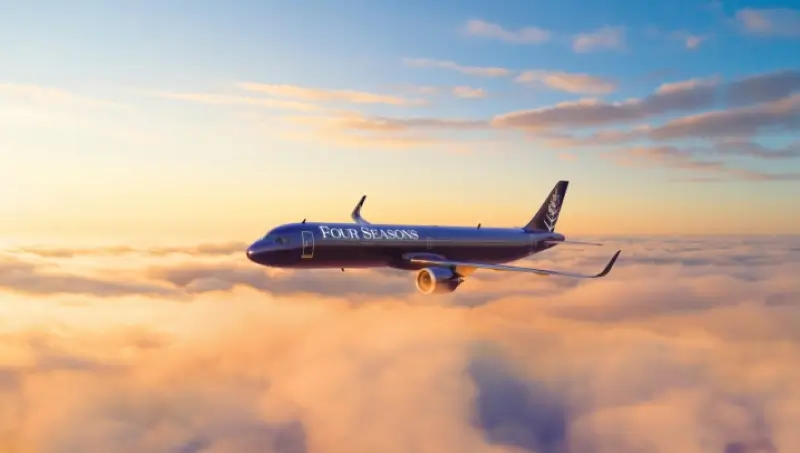
Pilot suicide brings down Germanwings flight 4U9525
Mar 25, 2015

On March 24, 2015, Germanwings flight 4U9525 tragically crashed in the French Alps, resulting in the deaths of all 150 people on board. Investigations revealed that the co-pilot, Andreas Lubitz, had deliberately initiated the descent of the aircraft while the captain was locked out of the cockpit. Lubitz struggled with mental health issues, which he had concealed from his employer and medical professionals. The incident raised significant concerns about airline safety protocols, mental health screening for pilots, and the need for better communication regarding medical conditions in the aviation industry. This catastrophe left a profound impact on aviation regulations worldwide.
On March 24, 2015, a tragic event unfolded when Germanwings flight 4U9525 crashed into the French Alps, leading to the loss of 150 lives. The investigation revealed that the co-pilot, Andreas Lubitz, had deliberately initiated the descent of the aircraft, marking this incident as a case of pilot suicide. This dreadful act raised significant concerns about mental health issues within the aviation industry and sparked discussions on the protocols for pilot screening and support.
Background of the Incident
Germanwings flight 4U9525 was en route from Barcelona, Spain, to Düsseldorf, Germany, when it met its catastrophic fate. The flight had a routine takeoff with no apparent mechanical issues. However, approximately eight minutes into the flight, the aircraft began an uncommanded descent, ultimately crashing into the mountains. The investigation, led by the French Bureau of Enquiry and Analysis for Civil Aviation Safety (BEA), uncovered that the co-pilot had a history of severe depression and had concealed his condition from his employer.
Understanding Pilot Mental Health
The incident highlighted the pivotal importance of mental health awareness among pilots. The aviation industry has stringent requirements for pilot certification, focusing heavily on physical health. However, mental health screenings were not as rigorous. Following the Germanwings tragedy, aviation authorities worldwide began reevaluating their mental health policies, emphasizing the need for regular psychological assessments.
Impact on Aviation Policies
In the aftermath of the crash, several regulatory bodies took immediate action to improve pilot screening processes. Notable changes included:
| Policy Change | Description |
|---|---|
| Enhanced Psychological Evaluations | Implementation of more thorough mental health assessments during the hiring process and periodic evaluations. |
| Mandatory Reporting | Requirements for pilots to report any mental health issues to their employers. |
| Support Programs | Development of support programs that encourage pilots to seek help without fear of repercussions. |
Public Reaction and Industry Response
The public response to the crash was one of shock and outrage, especially as details of the co-pilot’s mental health struggles emerged. Families of the victims called for greater accountability and transparency within the aviation industry. In response, airlines and regulatory authorities began to prioritize mental wellness, recognizing that pilot safety extends beyond physical capabilities.
The Role of Training and Support Systems
Training programs have also undergone significant changes. Aviation training institutions are now incorporating mental health training into their curricula. Pilots are being educated about the signs of mental distress, both in themselves and in their colleagues, fostering an environment of support and vigilance.
Long-Term Effects on Airline Operations
Many airlines have established comprehensive mental health programs to address the needs of their pilots. These initiatives include:
| Program | Description |
|---|---|
| Peer Support Networks | Creation of confidential support groups where pilots can discuss their challenges with peers who understand their profession. |
| Access to Counseling Services | Offering free and confidential counseling services to pilots, ensuring they have access to professional help when needed. |
Conclusion
The tragic crash of Germanwings flight 4U9525 serves as a grim reminder of the importance of mental health in aviation. The incident has led to significant changes in policies and practices aimed at safeguarding not only pilots but also passengers. As the industry continues to evolve, it is crucial that mental health remains a priority, ensuring that such a tragedy does not happen again. The lessons learned from this event will hopefully lead to a safer and more supportive environment for all aviation professionals.
In summary, the impact of pilot suicide on aviation safety is profound. It has catalyzed a shift towards more comprehensive mental health practices within the industry, emphasizing the need for continual support and assessment. As we move forward, the focus on mental well-being will undoubtedly shape the future of aviation, ensuring that pilot safety encompasses both physical and psychological health.
Related Articles

Explore Thailand: The Best Islands to Visit for Paradise, Adventure, and Relaxation

The Ultimate Guide to the Best Islands in Thailand for Your Next Getaway

Do babies need passports? How to get a passport for a newborn

How to get a U.S. passport fast: here’s how to expedite the process

What is Mobile Passport Control: 5 reasons why you should use it

SENTRI vs. Global Entry: A detailed guide

Do you need a passport to go to the Bahamas? Let’s find out

Do you need a passport to go to Mexico? A detailed guide

Do you need a passport to go to Canada? We got the answer

Do You Need a Passport for a Cruise: An Essential Travel Guide

Booster Seat Requirements: All the Rules to Follow in Your Rental Car

What Are the World’s Most Powerful Passports, and How Does Yours Rank?

How to Take a Passport Photo at Home: A Helpful Guide

You've got to have heart! Southwest's new livery

Your opinion: Should water be free on low cost carriers?

Young women bolder than guys as solo travellers
